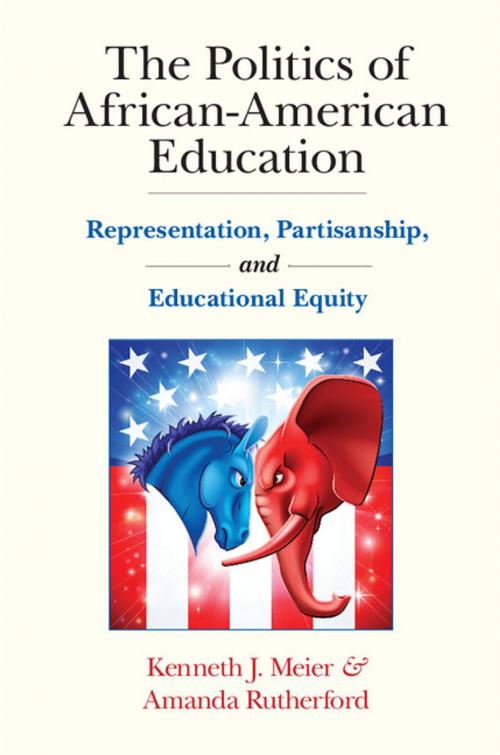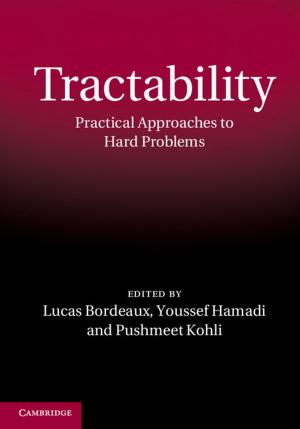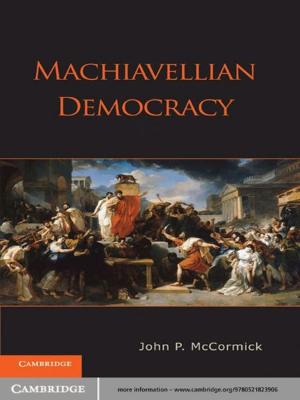The Politics of African-American Education
Representation, Partisanship, and Educational Equity
Nonfiction, Social & Cultural Studies, Political Science, Government| Author: | Kenneth J. Meier, Amanda Rutherford | ISBN: | 9781316683262 |
| Publisher: | Cambridge University Press | Publication: | August 22, 2016 |
| Imprint: | Cambridge University Press | Language: | English |
| Author: | Kenneth J. Meier, Amanda Rutherford |
| ISBN: | 9781316683262 |
| Publisher: | Cambridge University Press |
| Publication: | August 22, 2016 |
| Imprint: | Cambridge University Press |
| Language: | English |
Based on the 1,800 largest school districts in the United States over a decade, The Politics of African-American Education documents the status of African-American education and the major role that partisanship plays. The book brings together the most comprehensive database on minority education to date that centers around three arguments. First, partisanship permeates African-American education; it affects who is elected to the school board, the racial composition of school administrators and teachers, and the access of African-American students to quality education. Second, African-American representation matters. The effectiveness of African-American representation, however, is enhanced in Democratic districts while representation in Republican districts has little influence. Third, political structures matter, but they are not determinative. Two different structures - election rules and the independent school district - create the rules of the game in US education politics and policy but do not limit others from using those rules to change the outcome.
Based on the 1,800 largest school districts in the United States over a decade, The Politics of African-American Education documents the status of African-American education and the major role that partisanship plays. The book brings together the most comprehensive database on minority education to date that centers around three arguments. First, partisanship permeates African-American education; it affects who is elected to the school board, the racial composition of school administrators and teachers, and the access of African-American students to quality education. Second, African-American representation matters. The effectiveness of African-American representation, however, is enhanced in Democratic districts while representation in Republican districts has little influence. Third, political structures matter, but they are not determinative. Two different structures - election rules and the independent school district - create the rules of the game in US education politics and policy but do not limit others from using those rules to change the outcome.















